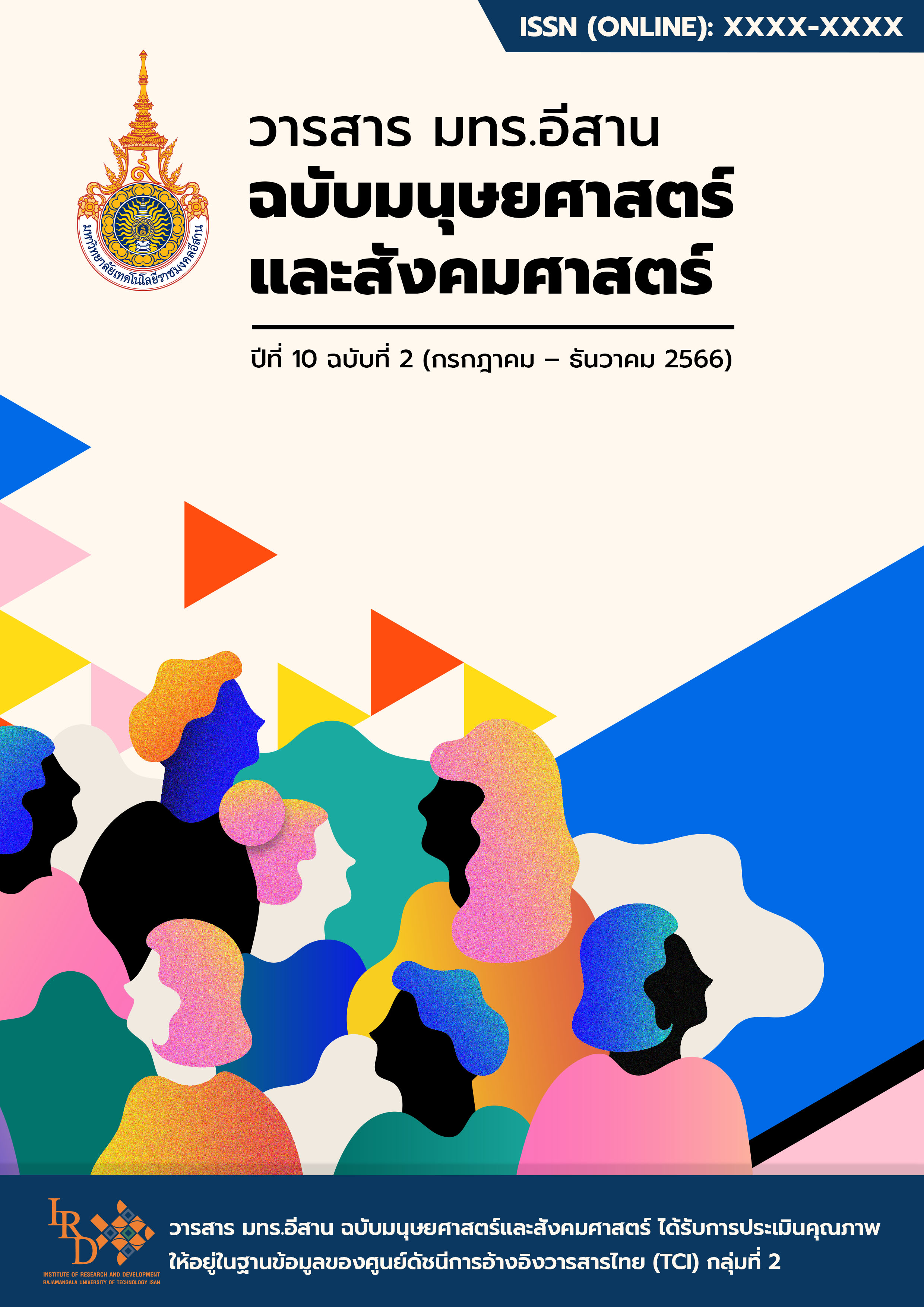Relationship Between Soft Skills and Happiness at Work Among Graduates of Public Health Faculty at Private Universities in Samut Prakan Province
Main Article Content
Abstract
The objective of the study was to examine the relationship between soft skills and happiness at work. The study population were students who graduated from private universities, with the sample size of 94 people who had graduated and had been working for 1 year or more. The research tool was a questionnaire, which included personal status, social skills, and job satisfaction; the content validity was between 0.67 and 1.00, and the content reliability was 0.938. The data was analyzed using statistical statistics, including the percentage, mean score, and standard deviation, and the relation was tested using inferential statistics by using multiple regression analysis. Soft skills results were overall at a high level. When each aspect was considered, it was found that the adaptive skills had the highest average and the emotional intelligence skills had the lowest. The overall level of happiness in the workplace was high. When each aspect was considered, it was seen that the interpersonal skills in work life had both the highest and the lowest averages. When the relationship was analyzed, it was found that social skills had a positive correlation with happiness at work. When each aspect was considered, it was found that decision-making and problem-solving skills interpersonal skills, emotional intelligence skills and social intelligence skills had a statistically significant effect on happiness at work at the 0.05 level.
Article Details

This work is licensed under a Creative Commons Attribution-NonCommercial-NoDerivatives 4.0 International License.
บทความที่ได้รับการตีพิมพ์เป็นลิขสิทธิ์ของมหาวิทยาลัยเทคโนโลยีราชมงคลอีสาน
ข้อความที่ปรากฏในบทความแต่ละเรื่องในวารสารวิชาการเล่มนี้เป็นความคิดเห็นส่วนตัวของผู้เขียนแต่ละท่านไม่เกี่ยวข้องกับมหาวิทยาลัยเทคโนโลยีราชมงคลอีสานและคณาจารย์ท่านอื่นๆในมหาวิทยาลัยฯ แต่อย่างใด ความรับผิดชอบองค์ประกอบทั้งหมดของบทความแต่ละเรื่องเป็นของผู้เขียนแต่ละท่าน หากมีความผิดพลาดใดๆ ผู้เขียนแต่ละท่านจะรับผิดชอบบทความของตนเองแต่ผู้เดียว
References
จิดาภา เร่งมีศรีสุข, นันทยา คงประพันธ์, นิสาชล ตรีไพบูลย์, ชนิดาภา กระแจะจันทร์, ชาสินี สำราญอินทร์ และพรทิพย์ ช่วยเพล. (2562). รูปแบบการพัฒนาทักษะทางสังคมของบัณฑิตนักปฏิบัติด้านบริการ ฐานความรู้ของมหาวิทยาลัยเทคโนโลยีราชมงคลสุวรรณภูมิ. อยุธยา: มหาวิทยาลัยเทคโนโลยีราชมงคลสุวรรณภูมิ
ชโลทร โชติกีรติเวช และวัลลภา อารีรัตน์. (2560). ความต้องการจำเป็นในการพัฒนาทักษะ Soft Skills เพื่อการจัดการเรียนรู้ของครู ในสถานศึกษาสังกัดสำนักงานเขตพื้นที่การศึกษามัธยมศึกษาเขต 25. วารสารวิจัยมหาวิทยาลัยขอนแก่น (ฉบับบัณฑิตศึกษา) สาขามนุษยศาสตร์และสังคมศาสตร์. ปีที่ 5, ฉบับที่ 1, หน้า 44-52
ฐาปกรณ์ อ่วมสถิตย์. (2564). การพัฒนาทักษะซอฟต์สกิลด้วยการดำเนินโครงการจิตอาสาตามแนวทางจิตตปัญญาศึกษา. วารสารศิลปศาสตร์ราชมงคลสุวรรณภูมิ. ปีที่ 3, ฉบับที่ 1, หน้า 37-50
นารีรัตน์ นุโยค. (2561). ทักษะทางสังคม. เข้าถึงเมื่อ (23 กันยายน 2563). เข้าถึงได้จาก (http://oknation.nationtv.tv/blog/nareeratn/2018/08/01/entry-1)
ภัทรดนัย ฉลองบุญ. (2561). ความสุขในการปฏิบัติงานของบุคลากรภาครัฐ. วารสารสันติศึกษาปริทรรศน์ มจร. ปีที่ 6 ฉบับพิเศษ, หน้า 590-599
มนตรี อินตา. (2562). SOFT SKILLS: ทักษะที่จำเป็นสู่ความเป็นมืออาชีพของครูยุคใหม่. วารสารวิชาการศึกษาศาสตร์ ศรีนครินทรวิโรฒ. ปีที่ 20, ฉบับที่ 1, หน้า 153-167
วิทวัส เพ็ญภู่, เสรี ชัดแช้ม และพุฒิชาดา จันทะคุณ. (2563). การแก้ปัญหาที่ซับซ้อน: ทักษะที่สำคัญอันดับแรกของศักยภาพมนุษย์ในศตวรรษที่ 21. วารสารครุศาสตร์สาร. ปีที่ 14, ฉบับที่ 1, หน้า 253-267
สำนักงานสถิติแห่งชาติ. (2565). อัตราการว่างงานประชากรไทย. กรุงเทพฯ: สำนักงานสถิติแห่งชาติ
สำนักงานกองทุนสนับสนุนการสร้างเสริมสุขภาพ. (2565). ความเครียดภัยเงียบสุขภาพบั่นทอนชีวิตคนวัยทำงาน. กรุงเทพฯ: สสส.
สุพรรณิการ์ ชนะนิล, วิภา ชัยสวัสดิ์, พันธ์ทิพา คนฉลาด, และปิยะธิดา ชนะพันธ์. (2563). การสำรวจความรู้ความเข้าใจเกี่ยวกับทักษะ Soft Skills ด้านบุคลิกภาพและศิลปะการพูดของนักศึกษาครู ในศตวรรษที่ 21. วารสารวิชาการ มหาวิทยาลัยราชภัฏบุรีรัมย์. ปีที่ 12, ฉบับที่ 1, หน้า 19-36
สุมาลี ดวงกลาง. (2560). ความสุขในการทำงานกับประสิทธิผลการปฏิบัติงานของเจ้าหน้าที่ฑัณฑสถานโรงพยาบาลราชทัณฑ์ (สารนิพนธ์). กรุงเทพฯ: มหาวิทยาลัยเกริก
Andrew, J. O., Proto, E., and Sgroi, D. (2015). Happiness and Productivity. Journal of Labor Economics. Vol. 33, Number 4. pp. 789-822
Manion, J. (2003). Joy at Work: Creating a Positive Workplace. Journal of Nursing Administration. Vol. 33, No. 12, pp. 652-655
Pryce-Jones, J. (2010). Happiness at Work, Maximizing Your Psychological Capital for Success. Journal of Workplace Behavioral Health. Vol. 26, Issue 3, pp. 271-273. DOI: 10.1080/15555240.2011.589756
Verma, S. (2013). Soft Skill for the BPO Sector. Delhi: Pearson


